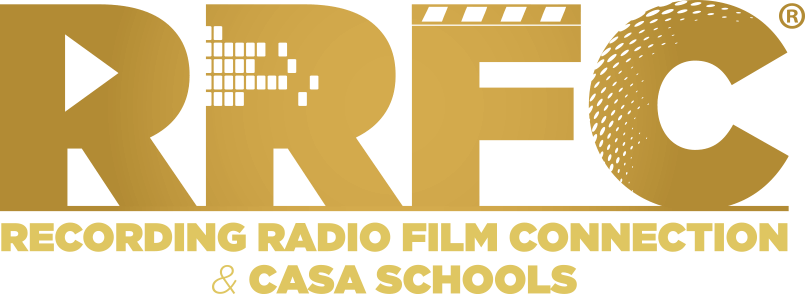
Resolve to Make Effective New Year’s Resolutions with These 5 Tips
None of us like it when we fail at keeping our New Year’s resolutions. Sure, such failure is rife, so much so that it’s something many of us joke about come February when we’ve already broken one or more of those promises we made ourselves. While we can chalk it up to human nature and laugh about it, maintaining our integrity, especially that which we show ourselves is actually a vital component of building a character that’s strong and geared towards success. Perpetually letting ourselves down by not showing up for ourselves, not honoring the very things we said we would do can erode self-confidence over time.
Here are a few tips for making sound New Year’s resolutions you can stick to.
#1) Remember Success is a Journey, not a Destination
They say success is a journey, not a destination. Look at any of today’s top performers and entrepreneurs from Beyoncé, to Elon Musk and you’ll see they’re focused on the journey more than some ultimate goal. For Beyoncé it’s that next album, that next sound. For Musk, it’s introducing electric semi-trucks into mainstream use, and thereby eliminating carbon emissions on a grand scale.
When it comes to building the lives and careers we want, seeing the road ahead as a journey we’re walking day-by-day can be more inspiring, sustainable, and grounded in reality. By now, you’ve probably heard that most “overnight successes” in film, music, and entrepreneurship are actually built on years of hard work and preparation that’s been peppered with highs and lows along the way. The media and our culture at large just love to buy into the idea of the overnight success because it attracts clicks and views. But there’s something more sinister at play too. By characterizing hard earned successes as “overnight” there creates the notion that success can be won in much the same way the lottery can be won (and what are the odds of that!). Hence success becomes that conceptual thing that’s seen as over there, remote, and abstract.
Dig into the lives of your muses or heroes to see how they got to where they’re at today and you’ll see they spent years doggedly pursuing their goals, refining themselves, and getting smarter and stronger in the process.
If this sounds at all discouraging then just consider this: time passes whether you’re working towards your goals or not. The truth of turning 30 or 40 will inevitably arrive, as long as you’re still kicking and breathing which is a very good thing. Whether or not you choose to spend that time in pursuit of what you want in life is up to you.
#2) Be Specific, Really Specific
If you want to achieve a goal you should know what it looks like, feels like, and even tastes like. Spend time visualizing what you’d like to achieve in detail. Then, write it down. By being specific in your goals, you’ll have something concrete to work towards and a metric that will keep you honest. It’s easy to fudge the goal of “produce a new song” or “get more sleep.” But, if you spell out what producing that track means with specific language like “I will fully produce a new R&B song, comprised of multiple high quality tracks and have it ready for online distribution by June 2018,” that’s a much more detailed resolution that states exactly what you as executive of your own career are working towards accomplishing. Write a similar specific goal to suit your goals and read it aloud to yourself. Then write a general version of the same goal. See how one leaves room for error/doubt/slacking, whereas the other one does not? But beware of going overboard! See next tip below.
#3) Make Ramp-Up and Interval Resolutions
Ramp-up or interval resolutions or progress reports may be a better way to go for many of us. A ramp-up or interval resolution sets specific goals that are to be achieved by a specific date. So rather than making a resolution to “complete my own short film,” you’ll break up that big goal into smaller parts, perhaps setting a date of March 1 for script completion, and a resolution to complete preproduction by April 1st and assemble crew by May 1st. Setting specific goals to achieve by certain intervals can help keep you on track and clear about what you need to achieve. Plus, by chopping up one big goal into several smaller goals, you can achieve throughout the year, you’re maximizing the opportunities you have to show yourself what you’re made of, increasing the number of accomplishments you can feel good about. Rather than striving all year to achieve that one big thing, you’re striving to achieve concrete goals within 30-90 day intervals. Ramp-up resolutions differ slightly than interval resolutions in that they “ramp up” i.e. get harder or more challenging over time. If growth is a big part of your agenda, ramping up your goals month by month can be a powerful motivator. Let’s say you want to increase the number of shows you produce for your podcast from once a month to once a week. Rather than increasing your production by 400%, which is probably a surefire recipe for burnout, why not setup a ramp-up resolution that by February you’ll produce 2 shows, by March, 3 shows and so on. By ramping up your New Year’s resolutions this way you’re giving yourself the time you need to make changes and find new strategies and shortcuts that work for you without setting yourself on course for a letdown, or meltdown.
#4) Consider Progress Report Resolutions
Progress report resolutions can work remarkably well for those of us who have let ourselves down in the past or who hate resolutions in general. They’re also better suited for long form creative pursuits like writing a feature screenplay or a book. If your pursuit requires a lot of mental stamina or deals with something that’s potentially deep or heavy for you, consider setting yourself up for success with this method which uses the aforementioned interval method in #3 and builds on it.
Say you want to have that book done and in your hands by December 31, 2018. That’s a specific goal that can be broken down into smaller goals such as, “Write 5-10 pages a day” or have story outline completed by February, Chapters 1-5 by March, etcetera. However, coming up short at meeting any of these smaller goals can be disheartening and might even take the wind out of our sails when we’re feeling less than inspired or hit a roadblock.
Setting specific goals is a great way to keep us aware and focused on what we’re trying to accomplish step-by-step. With the Progress Report method we check in with ourselves via written report, due at regular intervals, whether daily, weekly, or monthly. In that report we act as the executive in charge of our success or boss of our goals, whichever works for you conceptually. Then, in the first or third person (I find third person often works for me) we write about our experiences meeting or failing to meet certain goals. Here we neither harp on ourselves nor sugar coat anything, we just get really honest even if that means we need to say things that seem stupid like “Decided to watch the Rangers game and had too much beer.” Our progress reports give us the opportunity to get our missteps, fears, observations, insights and even practical solutions down on paper. What we’re doing, in effect, is mining ourselves for the answers and solutions that are waiting to be found. We’re also implicitly showing ourselves THIS MATTERS. Even when we fall short of making a deadline or meeting our page count, we’re actively looking into the reasons why by getting honest with ourselves, and are setting ourselves up for getting stronger and more aware of what drives us or takes us off course.
#5) Get Fun Into the Equation
Making fun #5 on our list doesn’t make it any less important. Rather than setting only good, ol’ responsible resolutions, why not inject one or two that are downright fun. You can tag a fun component into one of your New Year’s resolutions like, “Run a mile M-F and play video game for 20 minutes after every run.” Or, “write 5 pages daily and then 1 hour of TV afterwards.” Downright nonsensical or zany resolutions can be fun too, like “Do favorite celebrity impression every time their name gets mentioned” or “Have a 5 minute dance party every time I feel down.” Playing and having fun is a big, beautiful part of being human so inject it into your life and your goals every chance you get.
Here’s to a fun, fruitful, and successful 2018 and beyond. Get it!
What Science Tells us About Writer’s Block
Achieving Creative Flow
5 Tips for Fixing Creative Block



